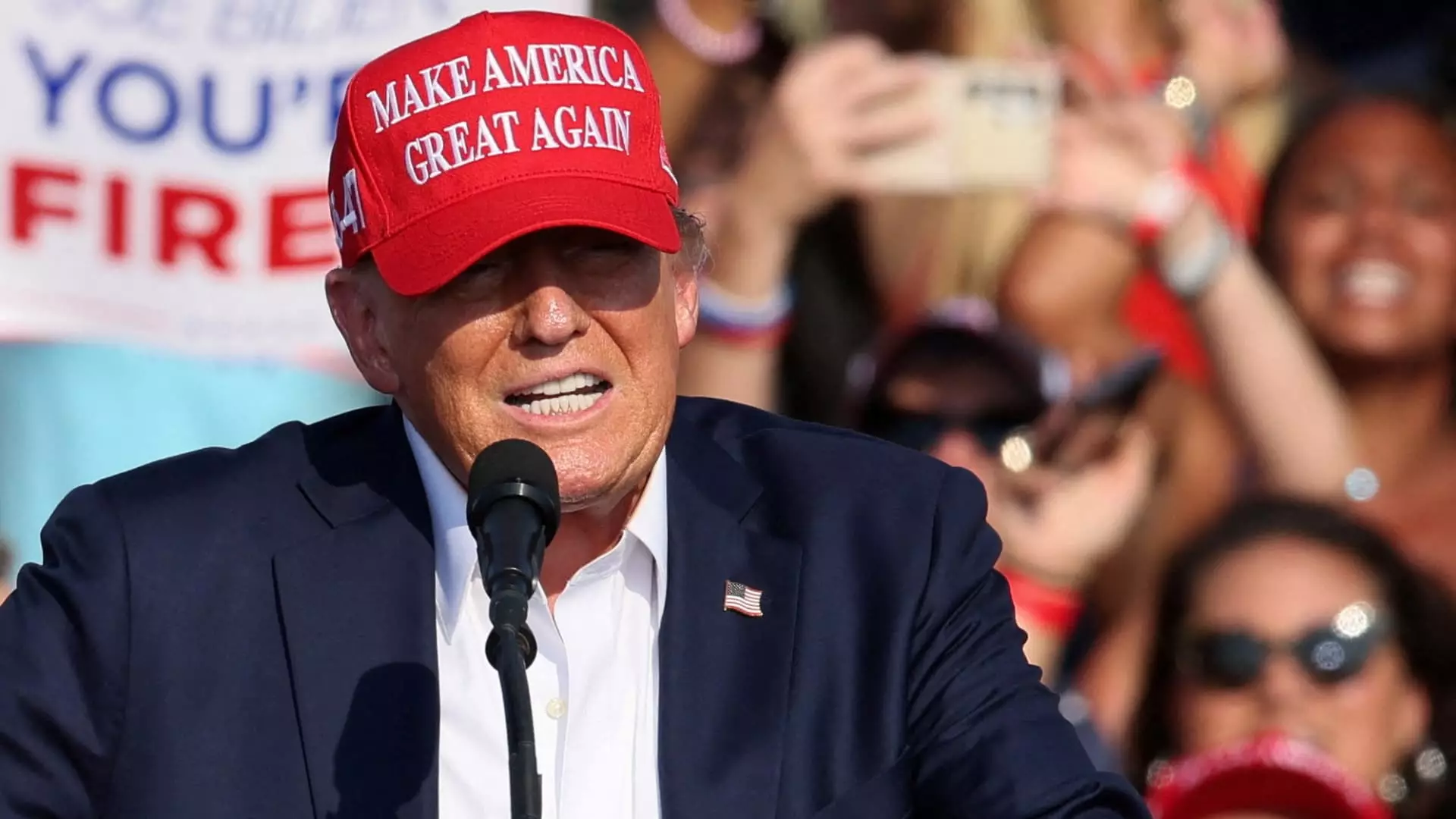Former U.S. President Donald Trump recently made headlines with his comments regarding Taiwan’s defense. In an interview with Bloomberg Businessweek, Trump suggested that Taiwan should pay the U.S. for its defense, arguing that the country “doesn’t give us anything.” This statement has sparked debate and raised questions about the future of Taiwan’s relationship with the United States, especially in the face of growing tensions with China.
One key aspect of Trump’s comments was his mention of Taiwan’s semiconductor industry, which is renowned for being one of the most advanced in the world. Trump pointed out that Taiwan has a significant share of the global chip market, which has led to concerns about the U.S. losing ground in this critical industry. This has wider implications not only for Taiwan but also for major American companies that rely on Taiwanese firms like TSMC for their chip manufacturing.
Taiwan Semiconductor Manufacturing Co. (TSMC) is a key player in the global semiconductor market and has become a dominant force in recent years. However, Trump’s comments have raised questions about Taiwan’s vulnerability in the event of a Chinese attack, particularly given the concentration of chip manufacturing on the island. TSMC Chair Mark Liu even warned that the company’s factories could become inoperable in the event of a military invasion, highlighting the risks faced by Taiwan’s semiconductor industry.
In response to these concerns, the Biden administration has taken steps to encourage more chip manufacturing on U.S. soil. By offering grants to companies like TSMC and Samsung to expand their production facilities in the U.S., the administration aims to reduce America’s reliance on foreign chipmakers like TSMC. This shift in strategy reflects broader efforts to strengthen America’s position in the semiconductor industry and safeguard its national security interests.
Overall, Trump’s comments on Taiwan’s defense and semiconductor industry have ignited a debate about the future of U.S.-Taiwan relations and the global chip market. While his remarks have raised valid concerns about Taiwan’s security and economic dependence, they have also underscored the need for strategic partnerships and long-term planning to navigate the complex geopolitical landscape of the semiconductor industry. As Taiwan continues to play a crucial role in global chip manufacturing, it faces both challenges and opportunities in safeguarding its position in this critical sector.


Leave a Reply